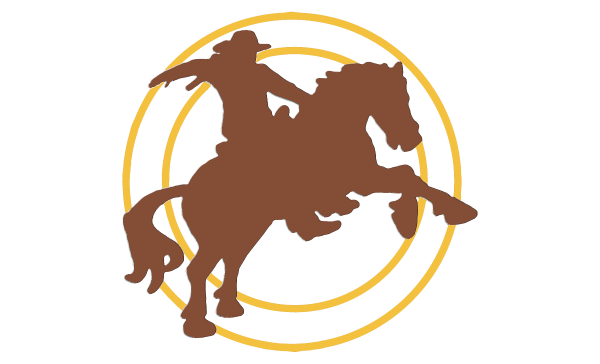
Mitski Explores the Many Sounds of Loneliness on Be the Cowboy
You probably wouldn’t be surprised to hear that Be the Cowboy, the latest album from singer/songwriter Mitski, is dark and focused on the failings and downswings of a person’s inner life. This is, after all, the same artist whose catalogue includes songs like “I Bet on Losing Dogs” (“I know they’re losing and I pay for my place/By the ring/Where I’ll be looking in their eyes when they’re down”), “Last Words of a Shooting Star” (“I always wanted to die clean and pretty/But I’d be too busy on working days”), and “Crack Baby” (“Down empty streets sniffing glue me and you/Blank open eyes watch the moonflower bloom/It’s been a long hard twenty-year summer vacation/All these twenty years trying to fill the void”). But what is notable about her latest record is its emphasis on loneliness – bottomless, almost elegant, loneliness. Loneliness whose size can only be described in terms of continents, planets, and the infinite, immeasurable void that exists in your heart when someone leaves you and seems to be doing much better for it. This grandiose nullity informs almost every facet of the record., and while it would engulf lesser artists, it lets Mitski reach new heights, both sonically and commercially (the Starbucks I’m currently writing this in is playing “Nobody”).
While Be the Cowboy’s production is bigger and grander and the arrangements are more varied and musically diverse than they are on any other Mitski release, the singer herself sounds more alone than ever before. On Bury Me at Makeout Creek and Puberty 2, for instance, she had a tight backing band and cathartic power chords to fall back on. On Be the Cowboy, on the other hand, Mitski sounds like an individual pushing against the inevitability of loneliness. This manifests in pulsing and hooky synths that populate a good chunk of the tracks, as well as the potent mix of album opener “Geyser”’s churning guitars and unabashedly bombastic symphonic elements.
The whole album is heartbreaking and gorgeous (I never thought I’d tear up over talk of coffee and diners, but then along came “Old Friend’s” delicate and devastating chorus), but it’s also unapologetically performative, and that may be Be the Cowboy’s best quality.
There is often an assumption that everything a singer/songwriter creates is autobiographical, and that assumption isn’t unjustified when applied to Mitski. She’s spoken openly about how her most famous song, Puberty 2’s “Your Best American Girl,” was inspired by her multi-ethnic heritage, and it’s no stretch to believe that any 27-year-old would have ample material to draw from for songs with titles like “Jobless Monday” and “Drunk Walk Home.” But in a statement about Be the Cowboy, Mitski has very intentionally separated herself from any real-life connections to the work, asserting that this record represents “an experiment in narrative and fiction” and is about “a very controlled, icy, repressed woman who is starting to unravel.”
This emphasis on fiction squares with Be the Cowboy’s imagery and marketing campaign – the artwork of the three lead singles, the album itself, and even photoshoot for her recent Pitchfork profile cast Mitski in the impossibly and painfully glamorous light of an actress preparing backstage or in her trailer. The title cards of her music videos also have her “starring in” “Nobody” and appearing “as ‘Mitski’” in “Geyser,” possible hints that we’re not meant to watch these videos as scenes from her life, but as a performance one step removed from reality.
She comes off as an ennuied Old Hollywood starlet: lovely, impeccably talented, demanding of attention, and ultimately impenetrable. She takes on a host of roles to go with the attitude, too, such as a bedroom disco queen in the bound-to-be-classic “Nobody,” a resigned wife in the Fiona Apple-esque “Me and My Husband” (which opens with a sigh, a stroke of genius I never knew I needed), and a being of pure regret in “Why Didn’t You Stop Me?” She’s positioning herself as the indie world’s answer to a host of pop chameleons, be they Bowie, Madonna, or Gaga. And you know what? Thank god. Confessional songwriting is great and all, but it’s fun to project your own emotions onto someone else’s work a little too, and it feels like that’s at least part of Be the Cowboy’s mission: To say the things we don’t know we feel in a simultaneously ornate and unvarnished way.
For the all the bombast and craft put into these songs, Mitski is deceptively economical. None of these songs even hits the 4-minute mark (though “Two Slow Dancers” only shorts it by a second) and act more as tiny little stylistic vignettes than traditional verse-chorus-verse songs. She finds mini-rock anthems in “A Pearl” and “Remember My Name” (the latter of which features one of the best choruses of her career), and weaves devastating narratives into the sub-2-minute “Lonesome Love,” “Come Into the Water,” and “Blue Light.” Sometimes this brevity feels a bit limiting, and the quick transition from track to track can make the record feel a little less than cohesive, but, again, this may be the point. Mitski may have publicly proclaimed the importance of narrative to Be a Cowboy, but to me, it feels a little more like a formalist heat check.
In the past, it felt like Mitski was telling us about her bad luck and broken heart as a form of 2-way therapy, helping her get something off her chest while giving us something to relate to. On Be the Cowboy, she recognizes herself as a master artist who’s capable of using the broken shards of her own heart to cut ours into ribbons. , not because she feels like she has too, but because she’s just realized she can.